When a marriage ends, oftentimes it’s because one partner is cheating. In the U.S., 20% to 40% of marriages dissolve because of infidelity. And sometimes, affair partners even marry each other and start a family of their own.
This couple wasn’t so lucky. After the husband cheated and destroyed his family for his co-worker, he wanted to start having kids with his affair partner. Unfortunately, it turned out she couldn’t have children. Heartbroken, the couple turned to the ex-wife for sympathy, but she refused to show compassion to the people who ruined her and possibly her children’s lives.
A cheating couple asked the husband’s ex-wife for sympathy when they couldn’t conceive

Image credits: jm_video/Envato (not the actual photo)
But the ex-wife showed no compassion to the people who ruined her life and never even said “sorry”





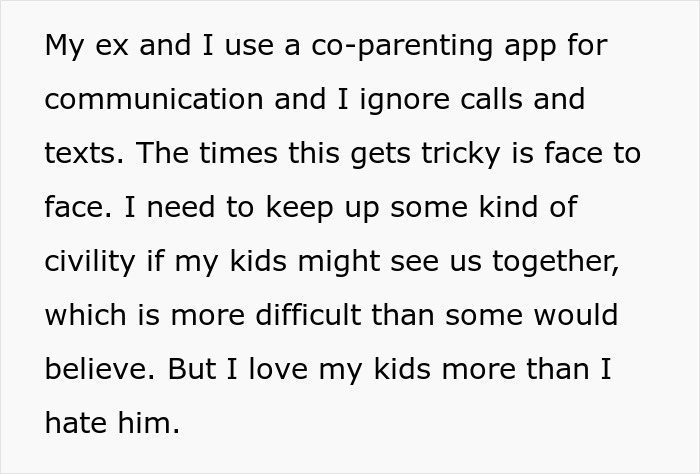

Image credits: africaimages/Envato (not the actual photo)








Image credits: GroundPicture/Envato (not the actual photo)





Image credits: ThrowAITAHAra
Marriages that start as affairs have a smaller chance of lasting than regular marriages
For some people, having an affair results in a happy marriage. Unfortunately, those people are in the minority. Statistically, a marriage that began as an affair is more likely to end in divorce. According to research, only 5% to 7% of affairs end in marriage, and 75% of marriages that began as affairs don’t last longer than five years.
Of course, that’s only statistics, and each case can be different. Relationship psychologist Dr. Kathy Nickerson explains that some marriages that began as affairs might be doomed to have trust issues. “Affairs often start in a secretive and dishonest way, which creates a foundation for trust issues and other challenges in the relationship,” she writes. Who’s to say that the husband won’t leave the new wife for another woman after a few years?
Clinical psychologist and couples therapist Dr. Kathy McMahon agrees. According to her, there are five other common pitfalls that couples may be victims of if their relationship started as an affair.
“The hard truth is that we bring ourselves – baggage, blind spots, and unmet needs – into every relationship we enter,” Dr. McMahon explains. “Falling into an affair may be an intoxicating distraction from long-simmering marital problems, but it’s rarely an effective solution.”
Infertility can sometimes be the reason for divorce as well
Reasons for divorce can be many: cheating, incompatibility, dependence on substances, and many others. However, sometimes, couples also break up because they’re not able to conceive children. While plenty of couples grow stronger in the face of infertility, many break up or file for divorce.
One 16-year-long Danish study found that 27% of women were no longer living with their partners with whom they had lived 12 years after finding out about their infertility. Essentially, the researchers concluded that those who couldn’t conceive were three times more likely to end their marriages.
Men and women also cope with infertility stress in different ways. A 2006 study showed that among couples going through IVF, women sought social support and were more confrontational in their coping strategies, often accepting responsibility. Men, on the other hand, “used proportionately greater amounts of distancing, self-controlling, and planful problem-solving.”
“I was pregnant when the affair originally started,” the ex-wife added in the comments
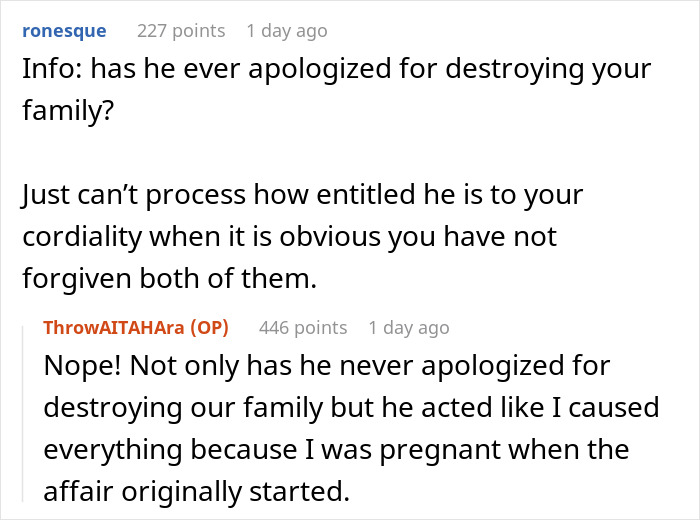
Commenters called out the delusional couple of cheaters: “She broke up your home and wrecked the life of those same children”
















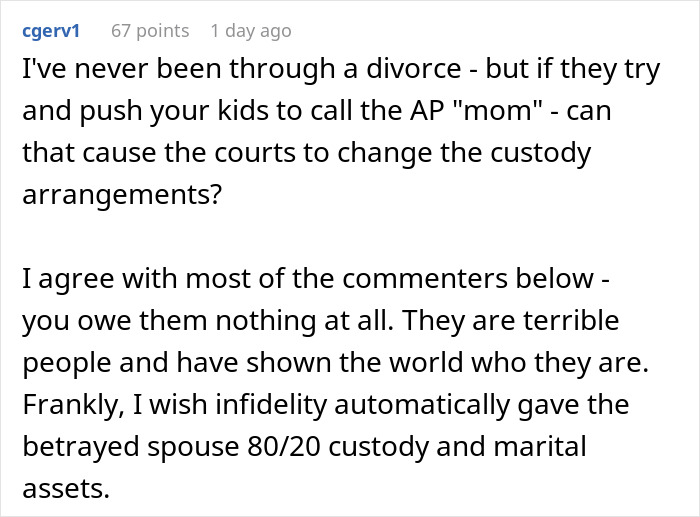





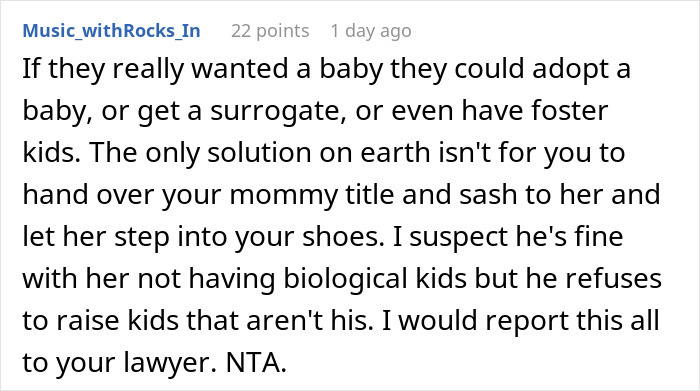








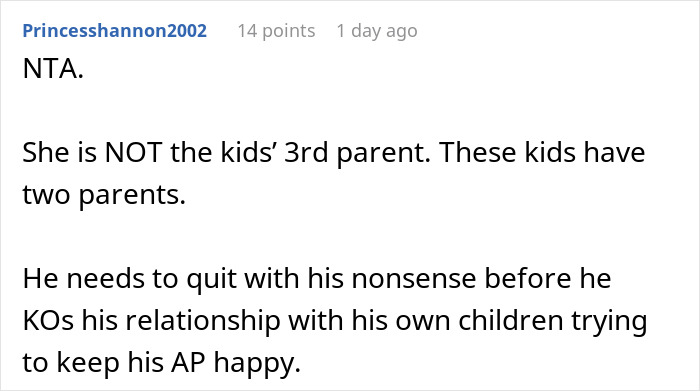
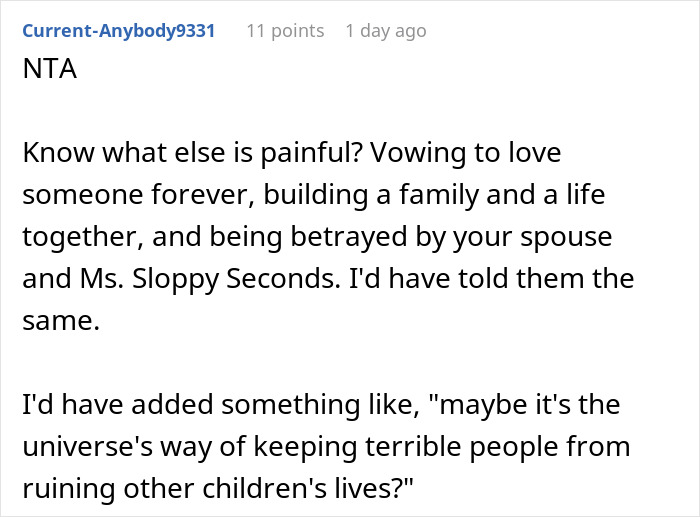

Others, however, thought she should’ve been more civil: “Stop being a baby”














